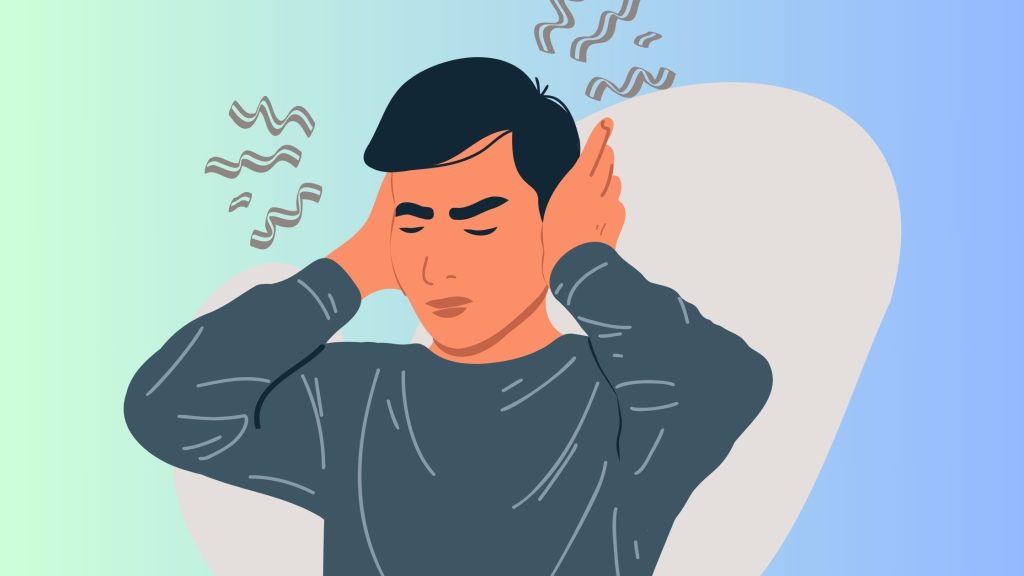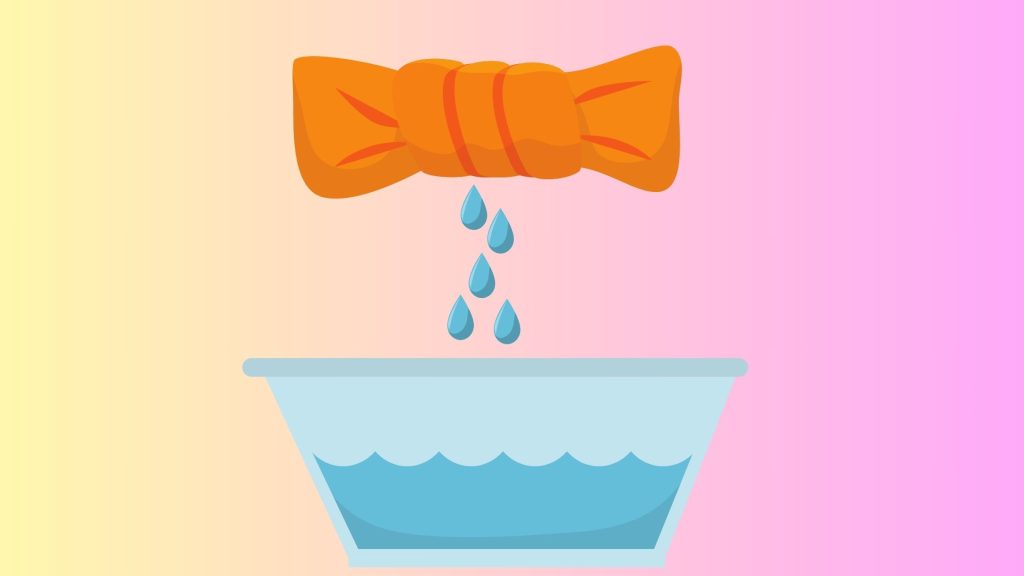How to Unclog Ears Congestion | A Comprehensive Guide

Ears congestion, though often a minor discomfort, can significantly affect our daily lives. Whether caused by allergies, infections, or environmental factors, the sensation of blocked or congested ears can be bothersome and even painful. In this comprehensive guide, we will delve into the various aspects of ear congestion, exploring its causes, home remedies, over-the-counter solutions, professional treatments, prevention strategies, and the critical signs that indicate it’s time to see a doctor.
Understanding Ears Congestion

What is ears congestion?
Ears congestion, medically known as “ear fullness” or “blocked ears,” refers to the sensation of pressure or fullness in one or both ears. It can be accompanied by muffled hearing and discomfort. Ear congestion is not a condition itself but rather a symptom of an underlying issue, which can range from simple earwax buildup to more complex problems like ear infections.
Common Causes of Ears Congestion
Understanding what causes ear congestion is crucial for effective management. Some common causes include:
- Earwax Buildup: Excessive earwax can block the ear canal, leading to congestion.
- Allergies: Allergic reactions can cause inflammation in the ear, leading to congestion.
- Ear Infections: Infections, such as otitis media or swimmer’s ear, can result in ear congestion.
- Sinus Congestion: Sinusitis and other sinus issues can indirectly affect the ears.
- Environmental Factors: Changes in altitude or air pressure can lead to ear congestion during air travel.
- Foreign Objects: Sometimes, foreign objects or insects can get lodged in the ear, causing congestion.
Importance of Addressing Ears Congestion
While ear congestion may seem like a minor inconvenience, neglecting it can lead to more severe complications. Untreated ear infections, for example, can result in hearing loss or damage to the eardrum. Therefore, it is essential to address ear congestion promptly and effectively.
Home Remedies for Ears Congestion
Steam Inhalation
Steam inhalation is a time-tested remedy for clearing ear congestion. To perform steam inhalation:
- Boil water and transfer it to a bowl.
- Add a few drops of eucalyptus or peppermint oil.
- Lean over the bowl and cover your head with a towel.
- Inhale the steam for 5–10 minutes.
Steam inhalation helps by loosening mucus, promoting drainage, and relieving ear pressure.
Warm Compress

Using a warm compress is another effective way to alleviate ear congestion.
- Soak a clean cloth in warm water.
- Wring out excess water and place the cloth against the affected ear.
- Leave it on for 5–10 minutes.
The warmth helps reduce ear discomfort and can improve blood circulation.
Hydration and Humidity
Staying well-hydrated and maintaining indoor humidity levels can prevent ear congestion. Ensure you:
- Drink plenty of water throughout the day.
- Use a humidifier, especially in dry climates or during the winter.
Proper hydration keeps mucus thin and promotes efficient drainage.
Nasal Irrigation
Nasal irrigation can indirectly alleviate ear congestion by clearing the nasal passages. Use a saline solution and a neti pot or a nasal spray to rinse your nasal passages.
Eucalyptus Oil
Eucalyptus oil has natural decongestant properties. Here’s how to use it:
- Add a few drops of eucalyptus oil to a bowl of hot water.
- Inhale the steam for relief.
Apple Cider Vinegar
Apple cider vinegar (ACV) can help treat ear congestion caused by infections.
- Mix equal parts of ACV and warm water.
- Using a dropper, put a few drops of the solution in the affected ear.
- Allow it to sit for a few minutes, then drain it out.
ACV’s antimicrobial properties can combat infection and reduce congestion.
Over-the-Counter Solutions
When home remedies aren’t sufficient, consider over-the-counter solutions to relieve ear congestion. These options include:
Decongestant Drops
Decongestant drops can provide temporary relief by narrowing blood vessels in the nasal passages, reducing congestion. Follow the recommended dosage, as overuse can lead to rebound congestion.
Nasal Sprays
Nasal sprays, such as saline or corticosteroid sprays, can help reduce inflammation and open up nasal passages, indirectly relieving ear congestion.
Antihistamines
Antihistamines can be effective if allergies contribute to ear congestion. They block histamine, a chemical released during allergic reactions. Choose non-drowsy formulas if you need to stay alert.
Earwax Removal Drops
Over-the-counter earwax removal drops can help dissolve excess earwax, alleviating congestion caused by earwax buildup. Follow the instructions carefully and avoid using cotton swabs, which can push wax further into the ear.
Saline Solution
A saline solution can help keep nasal passages moist and facilitate mucus drainage. It’s available in various forms, including saline nasal sprays and saline rinses.
Professional Treatment Options
In some cases, ear congestion may require professional intervention. If home remedies and over-the-counter solutions do not provide relief, consult an ear, nose, and throat (ENT) specialist. They may recommend the following treatments:
Consulting an Ear, Nose, and Throat (ENT) Specialist
If you experience persistent or severe ear congestion, it’s advisable to consult an ENT specialist. They can perform a thorough evaluation, including a physical examination and diagnostic tests, to identify the underlying cause.
Ear Syringing
Ear syringing, also known as ear irrigation, is a procedure that involves flushing the ear canal with warm water to remove earwax buildup. It should only be performed by a trained healthcare provider to avoid injury.
Tympanostomy Tubes
Tympanostomy tubes, commonly referred to as ear tubes, may be recommended for individuals with recurrent ear infections or chronic ear congestion. These tiny tubes are inserted into the eardrum to allow for fluid drainage and ventilation.
Ear Congestion Surgery
In severe cases, surgical intervention may be necessary. Various surgical procedures can address issues causing chronic ear congestion. Your ENT specialist will discuss the appropriate surgical option, if needed, and provide guidance on post-operative care.
Preventing Ears Congestion
Prevention is often the best approach to managing ear congestion. Here are some strategies to consider:
Maintaining Ear Hygiene
Proper ear hygiene can prevent earwax buildup and reduce the risk of ear infections. Use earwax removal drops or consult a healthcare provider if you experience earwax-related congestion.
Allergen Avoidance
Identifying and avoiding allergens can help prevent allergic reactions that lead to ear congestion. Consider allergy testing if you are unsure about your allergens, and work on creating an allergy-free environment at home.
Smoking Cessation
Smoking and exposure to secondhand smoke can exacerbate ear congestion. If you smoke, consider quitting to improve your ear health. Seek support and resources to help you quit smoking successfully.
Proper Ear Protection
Protect your ears from environmental hazards, especially in noisy or dusty environments. Consider using earplugs or earmuffs when necessary, and be mindful of occupational ear protection guidelines if you work in a noisy industry.
Lifestyle and Diet
Lifestyle and dietary choices can influence ear health and congestion. Consider the following:
Anti-Inflammatory Diet
An anti-inflammatory diet rich in fruits, vegetables, whole grains, and lean proteins can help reduce inflammation in the body, including the ears. Incorporate foods like turmeric, ginger, and omega-3 fatty acids into your diet.
Hydration Habits
Stay adequately hydrated throughout the day. Aim for the recommended daily water intake, and consider hydrating beverages like herbal teas and water-rich fruits.
Exercise and Ear Health
Regular exercise promotes overall health, including circulation. Engage in ear-friendly exercises such as yoga and swimming to maintain ear health.
Stress Reduction Techniques
Stress can exacerbate ear congestion. Practice stress reduction techniques such as meditation, deep breathing exercises, and mindfulness to keep stress levels in check.
When to See a Doctor
While many cases of ear congestion can be managed at home, there are times when it’s crucial to seek medical attention. Pay attention to warning signs, including:
- Severe pain: intense ear pain that persists.
- Hearing Loss: Significant or sudden hearing loss
- Fever: A high fever accompanied by ear congestion
- Drainage: pus or blood draining from the ear
- Dizziness or vertigo: experiencing a spinning sensation
- Prolonged Symptoms: Symptoms that last for an extended period
Doctor’s Evaluation
When you encounter these warning signs, schedule an appointment with a healthcare provider or an ENT specialist. During your medical evaluation, expect:
- A thorough medical history review
- A physical examination of the ears, nose, and throat
- Diagnostic tests such as audiometry and tympanometry are used to assess hearing and ear function.
Treatment Recommendations
Based on the evaluation, your doctor will recommend a tailored treatment plan. This may include medications, further tests, or specialized procedures. Follow your doctor’s advice and attend follow-up appointments as needed.
Conclusion
Ears congestion is a common and often manageable issue, but it should not be ignored. By understanding the causes, exploring home remedies, considering over-the-counter solutions, seeking professional treatment when necessary, and adopting preventive measures, you can take charge of your ear health. Remember that early intervention and proper care can lead to a healthy ear and a happier you.




